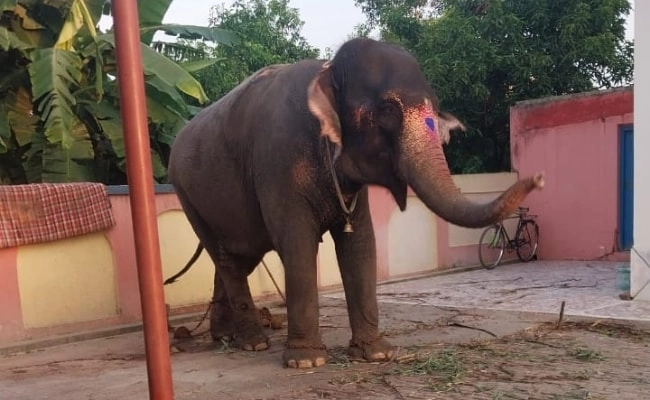In a shocking turn of events, a highly valuable elephant, valued at Rs 40 lakh, was reported stolen in Jharkhand and subsequently sold for a mere Rs 27 lakh in Bihar. This incident has raised significant concerns regarding wildlife protection and the illegal wildlife trade in India. Elephants, being a vital part of the ecosystem and cultural heritage, are often targeted by poachers and illegal traders, leading to a decline in their population and an increase in human-animal conflicts.
The theft highlights the vulnerabilities of wildlife sanctuaries and the need for stricter enforcement of laws aimed at protecting endangered species. In this case, the elephant was not only a living being but also an important symbol of ecological balance. The act of stealing such a majestic creature not only demonstrates a blatant disregard for wildlife laws but also speaks to a larger issue of organized crime in the illegal wildlife trade. The transaction, which saw the elephant being sold for significantly less than its market value, raises questions about the extent of the black market for elephants and the networks that facilitate such illegal activities.
Authorities are now faced with the challenge of not only recovering the stolen elephant but also dismantling the criminal networks involved in its theft and sale. Investigations are underway to track the movement of the elephant and identify those responsible for this heinous crime. Conservationists and wildlife activists have called for increased vigilance and collaboration among various agencies to combat wildlife crime effectively. Public awareness campaigns are also essential in educating communities about the importance of protecting wildlife and the legal ramifications of engaging in such illicit activities.
The plight of this stolen elephant serves as a stark reminder of the ongoing battle against wildlife crime and the urgent need for comprehensive measures to safeguard our natural heritage. It is crucial for society to come together to protect these magnificent creatures, ensuring that future generations can experience the beauty and grandeur of elephants in their natural habitats. As the investigation unfolds, the hope remains that justice will be served, and steps will be taken to prevent similar incidents in the future.




